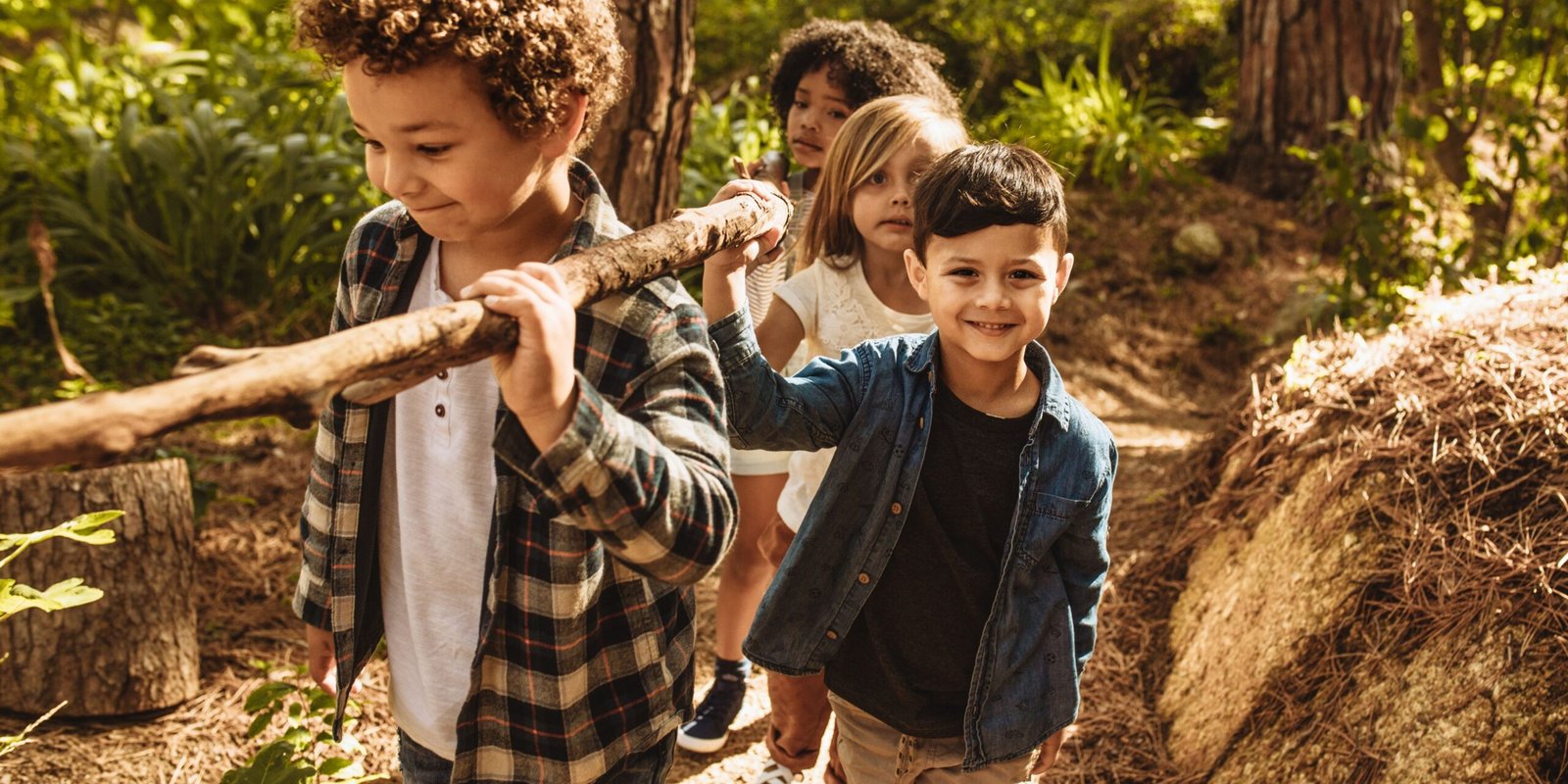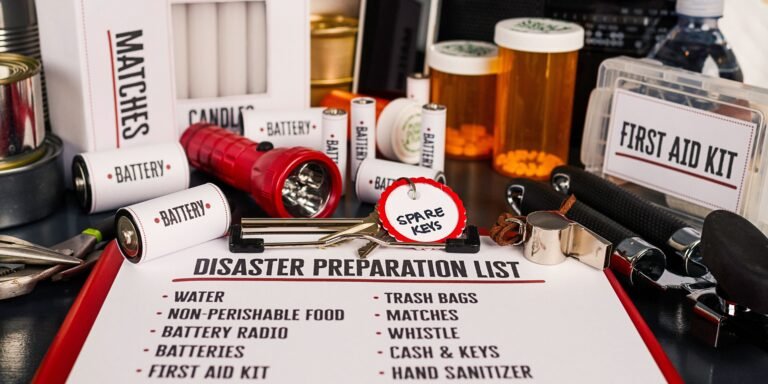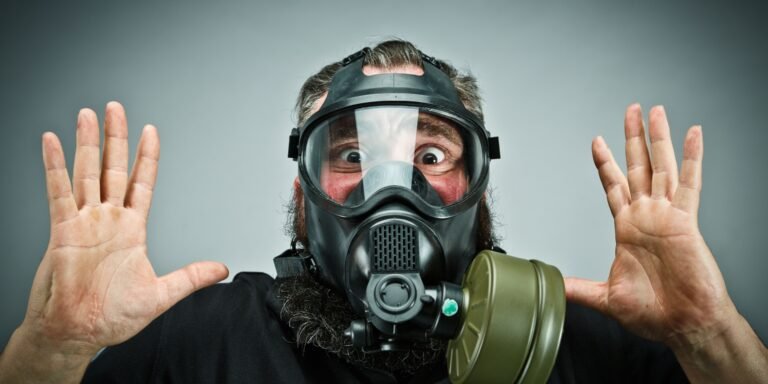How To Prepare Your Children For Possible Emergency Situations
This post may contain affiliate links, full disclosure here.
Your first responsibility as a parent is to look after your children. Not only does this entail providing their immediate needs and fulfilling some of their desires, but it also entails preparing them for the future. While most parents do their best to teach their children as much as they can before they become adults, the majority of children still have no idea what to do in an emergency.
While you may desire to protect your children from the outside world, the truth is that they probably know more about it than you think. They are always listening and are fast to pick up on current events, even if they don’t watch the news with you.
However, preparing your children is not the same as scaring them about what might happen if the world collapses in the future. There are numerous ways to instruct and educate your children without turning them into anxious wrecks. These recommendations will help you prepare your children for the impending mayhem.
See also: Top 20 Barter Items to Stockpile
How To Prepare Your Children For The Coming Chaos
Consider Age and Temperament
When preparing your child psychologically for a collapse, keep in mind their age and disposition. While younger children can defend themselves in games, they may not need to be aware of the more mature challenges that arise in emergencies.
Also, think about your child’s temperament and what he or she is capable of mentally when it comes to understanding all of the ins and outs of survival difficulties.
Psychologically Prepare Children
Teach youngsters about the mental components of survival to help them prepare for the impending collapse.
Keeping Warm
Heat is another essential component of survival no matter where you are on the planet. It is critical to keep your infant warm in order to extend their ability to survive on their own. Teach your kids how to make a fire, how to start a fire without matches, and what natural materials make ideal insulators for beds and clothes.
Skills in First Aid
Basic first-aid knowledge is also essential for survival. Children should have a basic understanding of germs and how to clean a wound. Advanced skills, such as how to control bleeding or apply a tourniquet, should also be taught. Any child should be familiar with CPR and the Heimlich maneuver.
Teach the Fundamentals
Knowing how to stay safe in an emergency is the foundation of survival abilities. Teaching your children fundamental survival skills will benefit them in a variety of situations.
Constructing a Shelter
While the thought of their home being destroyed can be distressing for a youngster, it is critical to teach children how to construct a rudimentary shelter. You may make it more enjoyable by having a survival time in the yard and showing them how to make a shelter with the items they have on hand. Make sure they understand the importance of direction, how to make the most of the sun, and how fast rain and severe weather may become a problem.
Food and Water Collecting
Staying alive is the most critical component of survival, thus the child will need to know where to locate food and water. Teach your children about solar stills, clean water sources, and how to purify even the dirtiest water to make it drinkable. Finding food to eat on your property, collecting eggs, fishing, and even hunting are all valuable skills to educate a youngster.
Identifying Potentially Dangerous Individuals
Identifying persons who pose a threat is an important ability for any child, whether in an emergency or not. Run through various collapse situations with your children to show them what a safe individual looks like vs a dangerous one. Remind them that not everyone in a uniform is safe, and not everyone with a gun is a threat.
Teach your children how to get away from danger and what to do if someone who isn’t safe approaches. Remind children that they know the topography and natural spots to hide that strangers or intruders may not be aware of when surviving at home or close to home.
It’s also a good idea to encourage your child to believe in themselves. Teach kids to trust their instincts and gut feelings when they’re approached by strangers, and that feeling off about someone will generally turn out to be correct.
Children’s Advanced Training
Teach your children advanced survival skills or provide them with survival training.
Self-Defense
Even the youngest members of a family can benefit from self-defense training. Make any type of self-defense skill into a game to keep things interesting while you study. Knowing how to get out of a sticky situation and what parts of the body to avoid could save your child’s life.
Self-defense skills could help protect your youngster against natural predators in the area. Teach your youngster how to recognize and track various creatures, as well as how to defend themselves from a natural predator.
Weapons Instruction
Knowing how to load, shoot, and clean a gun is an essential skill for every child growing up on a farm. While weapons may be less common in cities, it is critical to teach youngsters how to use a handgun to protect themselves and others. If you don’t own a gun, take your child to the local gun range to rent one.
A bow and arrow, an ax, or knives are among the other weapons that must be learned. While these abilities are intended for the family’s more advanced and older children, it’s always helpful to know what you have on hand in the event of an emergency.
Animal Hunting and Cleaning
Hunting and cleaning animals is another advanced ability that is beneficial to have. This will not only assist your child in feeding herself and others, but it will also teach them essential skills in determining which parts of an animal are safe to consume.
Teach your children how to catch or snare an animal and how to locate fresh meat without the use of a rifle. Knowing how to hunt and kill even the tiniest creatures might mean the difference between life and death.
Phonetic Alphabets and Morse Code
Another vital skill in an emergency situation is the ability to communicate with others. Teach your kids the NATO phonetic alphabet to help them communicate when it’s difficult to hear others. If speech isn’t an option, your youngster should be able to communicate with others via morse code and tapping or a light source.
While your children are in your care, it is critical that you teach them all of these survival skills. You can never be too prepared for a true emergency, such as a societal or economic collapse.
Taking a camping trip with your family can be a terrific method to teach these skills while still having a good time. Other choices include viewing one of the many survival shows on television, which can educate you how to stay alive in the face of adversity.
Remember to teach these skills in fun or game-like environment for younger or more worried youngsters who may not be ready for the realities of survival. All of these suggestions could mean the difference between your child surviving or not surviving the impending chaos.







